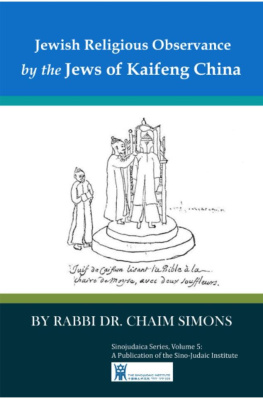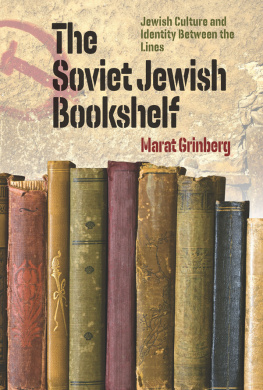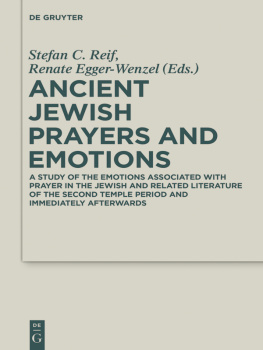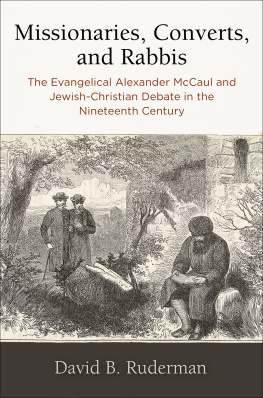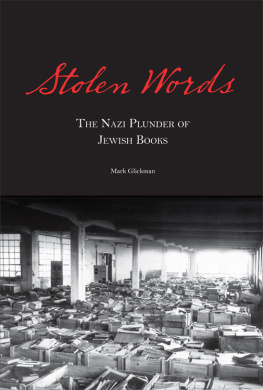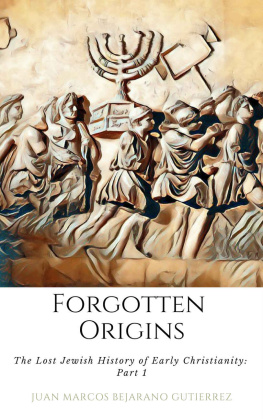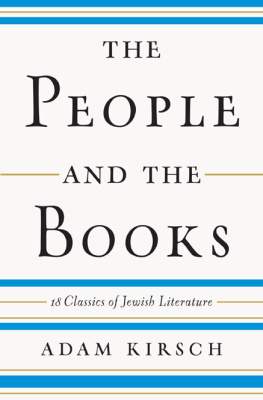Prince of the Press

The cities and towns of Oppenheims network, 16641736 (Bill Nelson)
Prince of the Press
How One Collector Built Historys Most Enduring and Remarkable Jewish Library
Joshua Teplitsky

Published with assistance from the Annie Burr Lewis Fund and from the foundation established in memory of James Wesley Cooper of the Class of 1865, Yale College.
Copyright 2019 by Joshua Teplitsky.
All rights reserved.
This book may not be reproduced, in whole or in part, including illustrations, in any form (beyond that copying permitted by Sections 107 and 108 of the U.S. Copyright Law and except by reviewers for the public press), without written permission from the publishers.
Yale University Press books may be purchased in quantity for educational, business, or promotional use. For information, please e-mail (U.K. office).
Set in Bulmer type by Tseng Information Systems, Inc.
Printed in the United States of America.
Library of Congress Control Number: 2018944524
ISBN 978-0-300-23490-9 (hardcover : alk. paper)
A catalogue record for this book is available from the British Library.
This paper meets the requirements of ANSI/NISO Z39.48-1992 (Permanence of Paper).
10 9 8 7 6 5 4 3 2 1
For my parents, with love
... of making many books there is no end.
Ecclesiastes 12:12
Contents
Acknowledgments
PERHAPS THE GREATEST LESSON I have learned from a study of the many worlds of books is the great number of people who contribute to any finished, published work. Behind every printed book stands colleagues and confidants, astute and generous critics, gracious funders, and friends whose impact on a finished project is palpable to the author at every page, even when it is not readily apparent to readers. It is my pleasure to take this opportunity to thank some of the colleagues and friends who lent their intellectual and moral support to this work, without which it could not have been written.
This project began as a doctoral thesis at New York University under the supervision of David Engel, who agreed to guide a project far from his own area of specialization, with the promise to prod my thinking and challenge my responses. He never wavered in that commitment, and I have learned much from his incisive questions and the lifetime service contract that comes with being his student. Elisheva Carlebach has been a constant source of wisdom and mentorship from long before the dissertation began, through the many stages of the writing of this book, and beyond. I am grateful for her unflagging support and the care and kindness that she perennially extends. My thanks to the Department of Hebrew and Judaic Studies and the Department of History at NYU, and to the faculty and staff there who contributed to the intellectual climate that first shaped this project. Hasia Diner, who has been supportive of my scholarship and the progress of this book, has my particular appreciation as well.
Although this book is based on a dissertation, it was significantly rewritten in large part during my time at the University of Oxford as the Albert and Rachel Lehmann Junior Research Fellow in Jewish History and Culture at the Oxford Centre for Hebrew and Jewish Studies and St. Peters College, Oxford. My thanks to the members of the Lehmann family who made this position, and my time at Oxford, possible to begin with and to my colleagues at Oxford, who welcomed me and provided a rich intellectual home to expand my horizons and think this project into its current form, including then president of the OCHJS Martin Goodman, Abigail Green, John-Paul Ghobrial, David Parrott, Lyndal Roper, and Giora Sternberg. My special thanks to Derek Penslar, David Rechter, Piet van Boxel, Joanna Weinberg, Miri Freud-Kandel, Adrianna X. Jacobs, Sara Hirschhorn, Shane Macgiollabhui, and Constantinos Repapis, and to Anna Remington and Gabriel Citron, all of whom helped me find a home in the city of dreaming spires. During my tenure there, I had the good fortune to be adopted by the Oxford Seminar in Advanced Jewish Studies, On the Word of a Jew, convened by Nina Caputo and Mitchell Hart. I am grateful to the members of the seminar for their conviviality.
My enduring appreciation to the staff of the Special Collections Reading Room of the Bodleian Library, which has been home, since 1829, to Oppenheims entire collection. I particularly thank Cesar Merchan-Hamann and the OCHJS for the invitation to present my findings in the form of the Catherine Lewis Lectures, which shaped much of the structure of this book. Special thanks to Rahel Fronda, who was instrumental in securing the rights for and reproduction of the images that populate the pages of this book.
In the process of researching this book I consulted material from the Jewish Museum in Prague, the Nrodni Archiv (National Archives), and the Nrodni Muzeum (National Museum), in Prague; the National Library of Israel and the Central Archives for the History of the Jewish People, Jerusalem; the Library of the Jewish Theological Seminary of America; and the rare book collection of Yeshiva University in New York. My thanks to the staff of all of these institutions who made this precious material available to me.
I thank my colleagues in the History Department at Stony Brook University for welcoming me into their ranks and supporting my work, especially Sara Lipton, who has been both friend and mentor; Gary Marker; Paul Gootenberg; and colleagues in the world of early modern book history Erika Honisch and Douglas Pfeiffer. Travel for researching this book and sharing my work in conferences and workshops was supported by awards from the Research Initiative Grant of the Faculty in the Fine Arts, Humanities, and Lettered Social Sciences; the Presidents Distinguished Travel Grants; and the UUP Individual Development Awards.
Along the road to completing this book, I have been the beneficiary of kind invitations to share my work and to receive valuable feedback. My thinking about this project was shaped by conversations with Anne Oravetz Albert, Elisheva Baumgarten, Avriel Bar-Levav, Shlomo Berger zl, Jay Berkovitz, Francesca Bregoli, Robert Chazan, Joseph Davis, Yaakov Deutsch, Arye Edrei, Aya Elyada, Shmuel Feiner, Sharon Flatto, Rachel Furst, Yehuda Galinsky, Debra Glasberg Gail, Rachel Greenblatt, Francois Guesnet, Elliot Horowitz zl, Maoz Kahana, Arthur Kiron, Howard Louthan, Verena Kasper Marienberg, Michael Miller, Tamara Morsel-Eisenberg, David Myers, Alexandr Putk, Lucia Raspe, Claudia Rosenzweig, Jacob J. Schacter, Andrea Schatz, Emile Schrijver, David Sclar, Michael Silber, Avi Siluk, Pavel Sldek, Ephraim Shoham-Steiner, Adam Teller, Mirjam Thulin, Chava Turniansky, and Rebekka Vo. Working with three partners on a Digital Humanities project about books-in-motion called Footprints: Jewish Books Through Time and Place brought many of the questions of this work into sharp relief, and I thank Michelle Chesner, Marjorie Lehman, and Adam Shear for their ongoing collaborative energies.
This book was completed during a sabbatical leave from teaching thanks to fellowships from the Katz Center for Advanced Judaic Studies at the University of Pennsylvania and the National Library of Israel in Jerusalem. My thanks to Steven Weitzman, Natalie Dohrmann, and the staff of the Katz Center in Philadelphia, as well as to the members of the fellowship year for their feedback to my work. My thanks to the National Library of Israel, particularly Elchanan Reiner, Aviad Stollman, Yoel Finkelman, Amir Schwarz Eisler, and the staff of the reading rooms there. Special thanks to Ted Fram for his official mentorship during this year and his unofficial guidance for several years now. My thanks also to Scott Ury for making a home for me at the Stephen Roth Institute for the Study of Contemporary Antisemitism and Racism at Tel Aviv University.
Next page

